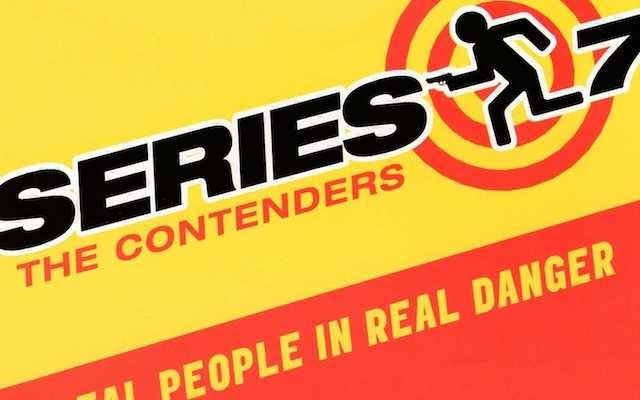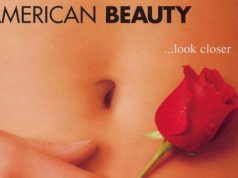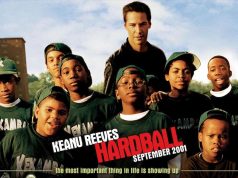
One of the benefits of being very, very old (I was born in 1974) is that I can remember when reality TV did not exist. Prior to 2000, the examples of it were so rare — Cops (which premiered in 1989) and MTV’s The Real World (1992) were about the only ones — that the genre didn’t even have a name. When the term “reality TV” was coined, it appeared in quotation marks for a few years before becoming an ordinary part of the language. Now there is an entire section of the Emmys devoted to it.
Things changed in 2000. Big Brother and Survivor, both already popular in Europe, launched hugely successful American editions that year, followed by Temptation Island, The Mole, The Amazing Race, and Fear Factor in 2001, American Idol and The Bachelor in 2002, and numerous others not worth mentioning.
Series 7: The Contenders premiered at Sundance in January 2001, days after the launch of ABC’s The Mole and Fox’s controversial Temptation Island (in which romantic couples were tempted to cheat on each other). I’d seen only a little of Survivor and Big Brother, and nothing of the others, but I was familiar with them because of the media’s relentless, breathless coverage of this exciting new television trend. Series 7 felt spectacularly timely and observant. It wound up on my top 10 list for the year.
What I said then:
“Series 7 is one of the most devastating satires of American pop culture ever conceived, a vicious and dark look at ‘reality TV’ — and, by extension, our society’s obsession with everyone getting their 15 minutes of fame…. Written and directed with precision detail by Daniel Minahan, [the film] couldn’t have come at a better time, what with ‘reality TV’ being all the rage at the start of the new millennium. We’ve all been raised on TV; in fact, most of our parents (and even THEIR parents, in many cases) were raised on it, too. TV is boring now. In order for us to be entertained by it, we have to actually be part of it…. Series 7, then, is the logical extreme of the directions we’re already heading. Sooner or later, we’ll be bored with people stranded on desert islands, and someone will have to up the ante. As if to smack us in the face for even thinking such a thing, the film is at times wantonly violent…. Minahan seems to say, ‘You think the idea of a TV show where contestants have to kill each other is funny? Well, here’s how awful it would be if it really happened.’ Relentless morbid and incredibly, darkly funny, Series 7 is a brilliant parody.” Grade: A [Read the whole review here.]
Other reviews were mostly positive, if perhaps not as effusive as mine. The distributor, USA Films, gave it a tiny theatrical release in March 2001, where it grossed a little under $200,000 and faded into obscurity. It continued to linger in my memory, but for some reason I never watched it again until now, 11 years later.
The re-viewing:
This turns out to be a great example of how a person’s opinion of a movie might shift because of factors that have nothing to do with the movie or the person. In January 2001, Series 7: The Contenders was an audacious, blistering attack on reality TV, which was new and had not yet been satirized extensively. In April 2012, while still a good parody, it doesn’t seem nearly as notable — but that’s only because ridiculing reality TV has become as commonplace as, well, reality TV. What was outrageous and daring then is almost subtle now, so accustomed are we to the conventions of reality TV and the mockery thereof.
None of that is a flaw in the movie. Owing to their of-the-moment nature, pop-culture satires that don’t feel dated after a decade are the exception, not the rule. And it isn’t that Series 7 is dated, really; pretty much all the points it makes still apply. Those points are just less clever now that so many others have made the same ones.
I didn’t laugh out loud this time as much as I remember laughing in 2001. The film itself is very straight-faced, almost never underlining its jokes. I’d call it “droll” or “sly” now, rather than hilarious.
Still impressive is the film’s spot-on imitation of the aesthetics of reality TV: the editing, the graphics, the music, and so on. If you were only halfway paying attention to it, you’d have no reason to believe it wasn’t a real show (except for the killings) because it doesn’t do anything to give itself away. Writer-director Daniel Minahan clearly had a keen eye for what made the new reality genre look and feel the way it did, and I was a little surprised to find that he hadn’t gone on to work in that field after Series 7. In fact, the TV shows he’s directed have been the cinematic kind — Six Feet Under, Deadwood, True Blood, and Game of Thrones, to name a few — which is almost exactly the opposite of reality TV.
I also like that participation in The Contenders is mandatory if your name is drawn, but the movie makes no effort to explain how or why that came to be the case. It’s set in present-day (well, 2001) America, with no reference at all to what has led to such a strict entertainment regimen. This was a wise choice for two reasons. One, it allows the film to just be satire instead of having to be sci-fi on top of it. Two, as soon as you start explaining what changes in American society and government supposedly produced this environment, viewers start trying to figure out which current real-life political trends you’re commenting on, which can become a distraction. (“He’s saying that this is where Obamacare will lead us!” “No, he’s saying we need better gun control!” Et cetera.) Minahan was smart to avoid that mess.
My only problem with the film is something that happens near the end, where the TV show presents a “re-enactment” of an event rather than the actual event. It’s the only time the movie ever feels like a parody, and it takes us out of the moment. On the other hand, it gives us a few moments with Will Arnett, back before anyone knew who he was, so maybe it’s OK.
Do I still love this movie?
The cultural landscape has changed a lot since 2001, yet nearly everything Series 7: The Contenders says about reality TV is still accurate. If anything, the film was ahead of its time, making observations about society that didn’t really sink in for a few more years. The humor trenchant, the characters authentic. When the history of reality TV parodies is written, this one will stand out as one of the most effective early examples. Grade: B+
— Film.com




